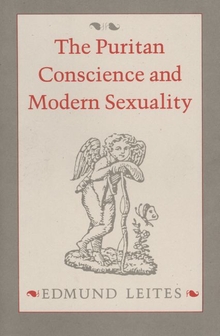The Puritan Conscience and Modern Sexuality
WARNING
You are viewing an older version of the Yalebooks website. Please visit out new website with more updated information and a better user experience: https://www.yalebooks.com
Edmund Leites
In a fascinating essay in philosophical history, Edmund Leites examines the sexual attitudes of seventeenth- and eighteenth-century England and discusses how they have affected beliefs on a variety of issues. Drawing upon the insights of psychoanalysis and a wide array of historical and literary sources, Leites shows that the Puritans called for a lifelong integration of sensuality, purity, and constancy within marriage.
"Leites has insights that will have to be taken into account by future writers on the subjects of women, gender, or sexuality."—Vern Bullough, author of Sexual Variance in Society and History
"Inspired by Max Weber's classic interpretation of Protestantism, Edmund Leites has written a lucid and provocative analysis of the ethic of constancy that arose in England during the 17th and 18th centuries. He combines the conceptual rigor of a philosopher with a historian's appreciation for nuance and detail."—Paul Robinson, Stanford University
"A very original book, written in a discipline—of philosophical history—which needs to be better understood in America."—Martin Green, Tufts University
"A very rich and provocative study of ethics . . . as presented in religious, moral, education, theological and literary texts. . . . An extremely rich interpretation of the formation of this tremendously important ethic; a study that is guided by a scholarly and erudite grasp of the primary literature . . . and by an original and probing mind. . . . I have no doubt that this book will challenge us to rethink many of our fundamental assumptions with respect to the constitution of the modern self, which is now at the centre of our studies, here and in Europe."—James Tully
"This book recovers the best the tradition of moral philosophy and philosophical history. . . . [It] opens a special window on history. Not to gaze out on battlefields and parliaments, but to look within the domestic interior to find the engine of social change."—E.V. Walter, Emeritus Professor of Sociology, Boston University
"A lively and energetically argued book."—Chloe Chard, Financial Times
"An innovative contribution to Puritan family studies."—Kenneth P. Minkema, Journal of American History
"An intellectual understanding of the role of marriage. . . . It is and interesting, clear, and (not least) a beautifully designed book."—Susan Dwyer Amussen, Journal of Modern History
"A wonderfully lucid and thought-provoking essay in philosophical history. It will interest theologians, historians, psychologists, students of gender and sexuality, as well as literary specialists, and it is succinct enough to be read in a couple of sittings."—Frances Knight, Theological Book Review
ISBN: 9780300065497
Publication Date: September 27, 1995
Publication Date: September 27, 1995
208 pages, 5 1/2 x 8 1/4


